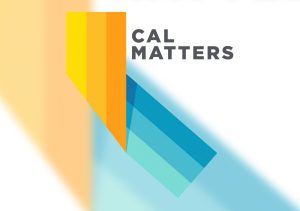While it’s “back to school” season, lessons abound outside the classroom. For example, Santa Clara Unified Board of Trustees meetings offer parliamentary procedure lessons you’d never get just reading Roberts Rules of Order.
Consider the Consent Agenda (or Consent Calendar). Intended to streamline meetings, it gathers routine business for approval in one motion without discussion. To discuss a consent item, or vote on it separately, you must ask the chair to “pull” it.
But Consent Agendas’ simplicity can subvert open governance because people pay less attention to them. They’re less likely to read individual items or attend meetings prepared for discussion. Consent agendas can hide controversial actions, or supply pretexts for introducing topics outside the published agenda – prohibited by California’s Brown Act.
SCUSD’s Aug. 26 meeting was a tutorial on this. Trustee Christopher Stampolis pulled an item accepting donations to Don Callejon School, and Trustee Ina Bendis pulled agreements with outside service providers for after-school and drug education programs. This triggered over an hour of polemic on accounting procedures, educational inequity, donation policies, and afterschool programs – none of it on the agenda.
Don Callejon Community Association’s $11,000 in donations provided additional funds for lunchtime supervisors, the 6th grade science field trip, and teacher prep time for PE and the Fountas & Pinnell Benchmark Assessment System (used by the district for “one-on-one assessment of students’ instruction and independent reading abilities”).
After confessing to being “perplexed” by the Callejon donation forms’ dating – the donations reimbursed school accounts for money spent the previous fiscal year (commonplace in bookkeeping and election campaign accounting) – Stampolis changed the subject to continue an ongoing attack on what he says is SCUSD’s deep-rooted discrimination and inequity.
“This says [that] those schools that have money get extra noon supervisors and those schools that don’t have the financial wherewithal…‘too bad.’ And it may be harsh language, but I’m going to put it straight out, I’m tired of the Tale of Two Cities in this district where rich schools get more and less rich schools don’t…because what we are voting on tonight is donations that are exclusively to pay [Callejon] staff…I’d like to ask the Superintendent…what our district policy is with regard to that?”
“I think there is allowance for people to raise money for purposes like that,” replied Superintendent Stan Rose. “It’s absolutely legal to use donations for these purposes,” added Asst. Superintendent Business Services Mark Allgire.
“Would it be possible to get an answer from Dr. Rose about the 13-14 restrictions on these donations,” Stampolis reiterated. Superintendent Stan Rose replied that he didn’t know that there were any restrictions.
Bendis then picked up the ‘Tale of Two Cities’ theme.
“If you look at…student achievement at Don Callejon and…socioeconomics there, the real challenge academically is in the achievement of the students at the middle school level…the huge achievement gap between the low socioeconomic students, Latino students – and that’s where they are [middle school] because they’re coming in from Mayne – vs. the very high achievement of the students coming from Rivermark… The academic performance ….is lower at Don Callejon than at any other middle school.
“Yet we have a very affluent group of parents whose children are the bulk of the K-5 kids,” she continued, “who are succeeding beautifully in school, whose children don’t need as much extra support, and all the programs…supported by these donations are for those students.”
No one challenged this, but in fact California’s 2013 API data (cde.ca.gov) doesn’t show Callejon in last place academically. (There was no state testing in 2013-14).
Callejon’s Latino students (32 percent) had average API scores of 762, and its low-income students (40 percent), 763. At Cabrillo, Latino students averaged 730, and low-income students, 760. At Buchser the scores for these cohorts were 734 and 750. At Peterson they were 759 and 776.
But before any actual discussion of these points could happen, the meeting devolved into procedural wrangling – now a familiar board meeting feature.
“There are three donations here that I can’t in good faith vote yes on because of the paperwork discrepancies,” said Stampolis, “and the superintendent doesn’t know the policy for the district and apparently doesn’t have anyone present whom he can ask …Could we vote on those three separately?”
“If one board member objects to dividing the motion, it can’t be divided,” replied Trustee Andrew Ratermann. “And I will object.”
“Then you can’t,” Board President Christine Koltermann told Stampolis.
“You don’t have the right to say that, President Koltermann,” replied Stampolis, who has challenged Koltermann’s procedural decisions before. “I’ll simply make a motion to vote separately.
“Normally under parliamentary rules,” he continued, “and I know that Trustee Ratermann and I may tend to disagree because we know a little more about [it]… my understanding is that when there’s a motion where there are distinct items that are connected… it’s a simple courtesy to allow them to be separated… I can’t in good faith vote on the ones I mentioned…especially since staff doesn’t have any information.”
This “is about whether a board member should have the right to vote their conscience on an item,” he went on. “Normal process is to allow that …as a courtesy…Otherwise, the person who prepares the agenda has emperor-like control over whether a person votes ‘no’ on something they want to support if they want to vote their conscience on something they oppose…The majority oppresses the minority… politics that happens on this board quite frequently, and Mr. Ratermann. I will call you out on this—”
“I’d like to move on,” interjected Kolterman.
“You can have a courtesy, but you don’t have to,” Ratermann told Stampolis. “I have to vote my conscience, which is not to divide the question and…require…it be voted on as is. That is parliamentary rule, and I’m not going outside parliamentary rule.”
Stampolis then made a formal motion to create two action items, which passed 5-2; followed by a 6-1 vote accepting the donations.
More off-agenda discussion ensued over YWCA’s and Boys and Girls Clubs of Silicon Valley’s contracts for state-funded afterschool programs at Bowers, Bracher, Briarwood, Hughes, Mayne, Montague, Pomeroy, Scott Lane, Buchser and Cabrillo.
This morphed into a discussion of whether Peterson Middle School had afterschool programs, whether it should, what other schools didn’t have afterschool programs, and program evaluation criteria.
“Petersen has afterschool programs in Starting Arts, and drama and sports,” offered Classified Staff Director Michele Burchfiel.
“I’d like to object to Ms. Burchfiel,” said Stampolis, “and ask the staff that she be educated about what is and is not onsite. That’s not a professional response.” Koltermann asked for a staff report on after school programs for a future meeting.
Stating that there were “a number of schools…not being served,” Stampolis recommended “the President have a chat with the Superintendent to make sure we don’t just hide things…rather than addressing them straight-on.” Koltermann repeated that she’d just requested a report.
“I’m going to request that the president request the superintendent [that] at the next board meeting we have a very brief presentation by staff,” added Bendis, “with the data provided to the trustees prior to it so we have sufficient time to look at it, so that we have for each and every elementary and middle school: What program is offered after school, whether the program includes a available room where students can stay and simply do their homework, with a teacher or some responsible person staffing the room… for each school…what days of the week there is something available, what those things are, what grade levels it’s restricted to…in a chart form,” and agendized so the board could “take action to correct any inequities.”
The contracts raised “a ton of questions” for Stampolis. “What is the criteria [for evaluation]? Who is … responsible? The agreement we just had a motion to adopt referred to standardized test scores. Just so that the public understands…that’s the only criteria… to evaluate each and every YMCA [sic] program.”
In the end, the board approved the contracts.
SCUSD’s Sept. 11 agenda includes: Common Core implementation status update (C.4), 2013-14 closing financial report and 2014-15 budget update (F.2), and $40,000 in donations to Callejon School for an Outdoor Fitness Zone (F.4).











0 comments